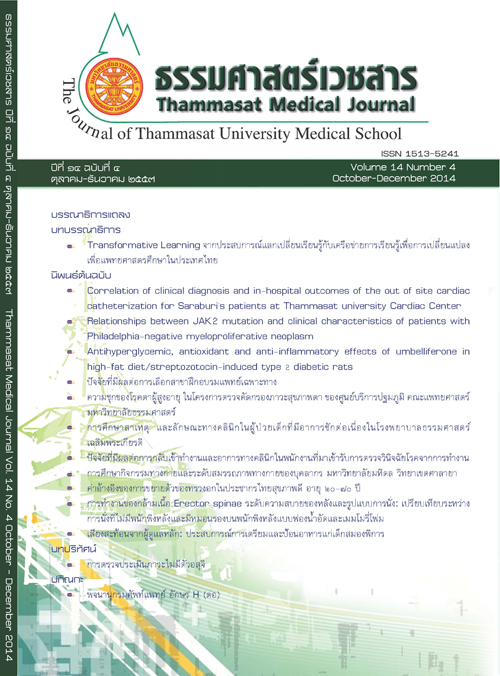Antihyperglycemic, antioxidant and anti-inflammatory effects of umbelliferone in high-fat diet/streptozotocin-induced type 2 diabetic rats
Keywords:
Umbelliferone, Type 2 diabetic rat, Oxidative stress, InflammationAbstract
Introduction: Oxidative stress and chronic inflammation are important pathological processes that can cause insulin resistance and type 2 diabetes mellitus, and eventually complications of diabetes mellitus. For this study, we aimed to investigate the effect of umbelliferone (UMB) in the regulation of blood glucose, hyperlipidemia, oxidative stress, and chronic inflammation in high-fat diet/streptozotocin-induced type 2 diabetic rats.
Method: Male Wistar rats were fed on 45 kcal % fat diet for 3 weeks followed by intraperitoneally injected with a single dose of streptozotocin (35 mg/kg). Diabetic rats were fed with UMB for 6 weeks. The fasting blood glucose (FBG), lipid profiles, malondialdehyde (MDA), and inflammatory cytokine; tumor necrosis factor-α (TNF-α) and monocyte chemoattractant protein-1 (MCP-1) were determined.
Result: Type 2 diabetic rat model showed elevated blood glucose, impaired glucose tolerance, increased total cholesterol, triglyceride and non-esterified fatty acid, increased MDA, and increased TNF-α and MCP-1. The results of the present study have been shown that the UMB treatment reduced blood glucose level, improved glucose tolerance, and decreased the levels of all of lipid profiles. In addition, serum and tissues MDA as well as levels of TNF-α and MCP-1 in serum were decreased.
Discussion and Conclusion: These results suggest a beneficial effect of UMB in reducing the blood glucose, hyperlipidemia, oxidative stress and inflammatory mediators in type 2 diabetic rats.
Key words: Umbelliferone, Type 2 diabetic rat, Oxidative stress, Inflammation



